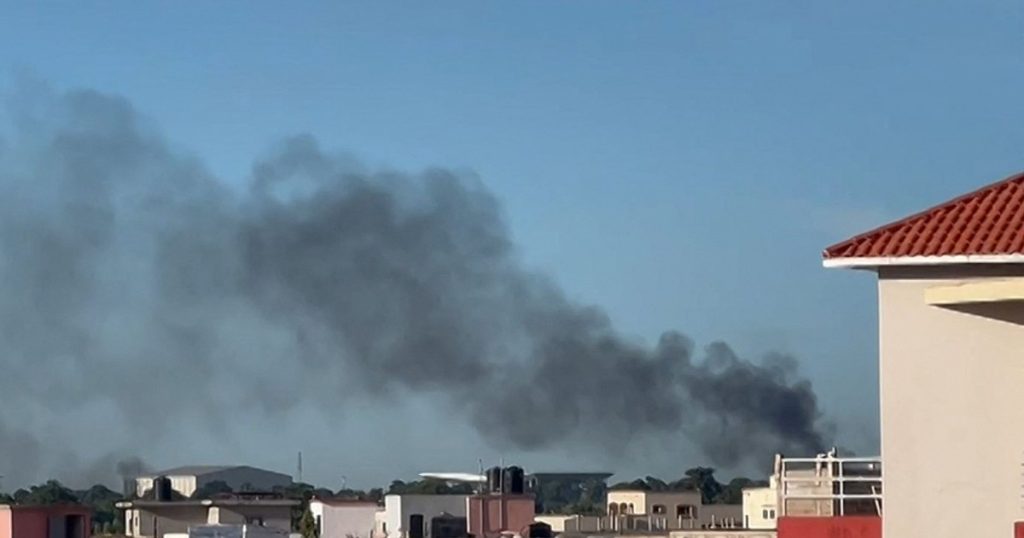An attack on Mali’s capital, Bamako, led to the deaths of an estimated 77 people and injuries to about 200 others. The incident caused hospitals to be overwhelmed with wounded patients, with gunshots and explosions reported by residents. Malian authorities closed Modibo Keita International Airport in response to the attack, which targeted an elite military police training school and a military base near the airport. The al-Qaeda-linked Jama’at Nusrat al-Islam wal-Muslimin (JNIM) claimed responsibility for the attack.
The attack in Bamako is significant as it specifically targeted military bases in the capital. While violence from armed groups has been ongoing in Mali since 2012, it has been concentrated in the northern and central parts of the country, far from the capital. The last major attack in Bamako occurred in 2015 when fighters targeted foreigners at a nightclub and the Radisson Blu Hotel. Following a military coup in 2020, Mali’s government has turned to Russian Wagner forces for support after ordering French forces and UN peacekeepers to leave the country.
In August, Tuareg rebels launched a significant attack on Russian mercenaries in Mali, resulting in the deaths of numerous Malian soldiers and Russian fighters. Tuaregs have long resented Bamako and have waged separatist wars, calling for an independent country called Azawad. The attack by Tuareg rebels further highlights the instability in Mali and the challenges faced by the military government in maintaining security.
The wider region, including Mali, Niger, and Burkina Faso, is experiencing increasing levels of violence despite their military governments cutting ties with France and turning to Russian forces for support. The number of attacks involving armed groups has risen significantly across the three countries, causing thousands of civilian casualties. Liptako-Gourma, a region linking the three countries, has become a volatile hotspot. The formation of the Alliance of Sahel States has led to the deployment of Russian fighters in Burkina Faso and Niger to combat armed groups.
Burkina Faso is particularly hard hit, with two-thirds of its territory now under the control of armed groups like JNIM. The conflict monitoring group ACLED reported that over 8,000 people were killed in Burkina Faso in 2023, double the number from the previous year. Niger, which had been showing signs of stability, has seen an increase in deadly attacks from the ISIS affiliate in the Sahel following a military coup in July 2023. The region remains volatile, with ongoing violence and instability posing significant challenges to the military governments.













